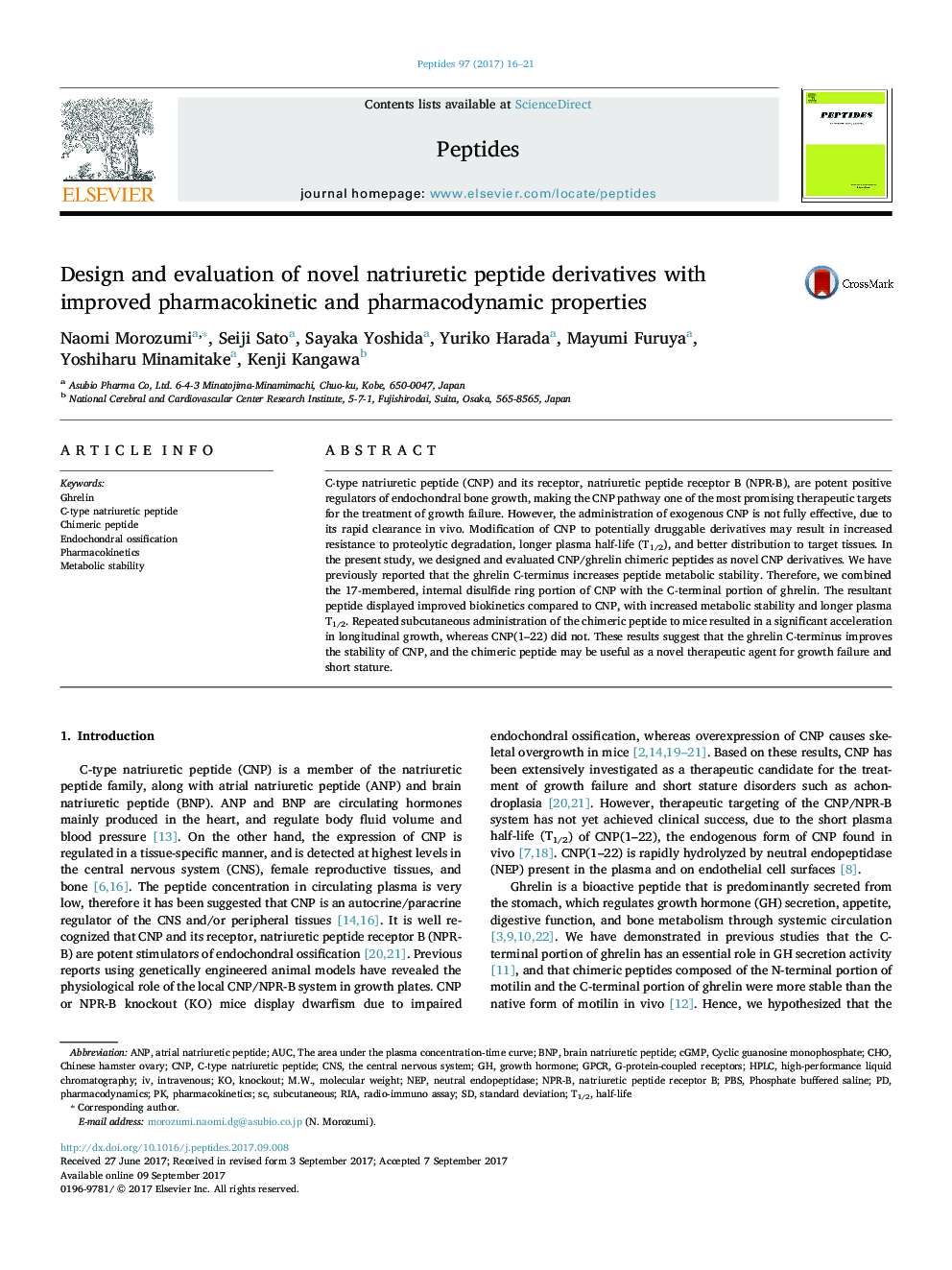| Article ID | Journal | Published Year | Pages | File Type |
|---|---|---|---|---|
| 5514542 | Peptides | 2017 | 6 Pages |
â¢Verification and evaluation of properties of the C-terminal portion of ghrelin.â¢Approaches to improve stability, bioavailability and bioactivity of CNP.â¢CNP/ghrelin chimeric peptide as a new therapeutic candidate for growth failure.
C-type natriuretic peptide (CNP) and its receptor, natriuretic peptide receptor B (NPR-B), are potent positive regulators of endochondral bone growth, making the CNP pathway one of the most promising therapeutic targets for the treatment of growth failure. However, the administration of exogenous CNP is not fully effective, due to its rapid clearance in vivo. Modification of CNP to potentially druggable derivatives may result in increased resistance to proteolytic degradation, longer plasma half-life (T1/2), and better distribution to target tissues. In the present study, we designed and evaluated CNP/ghrelin chimeric peptides as novel CNP derivatives. We have previously reported that the ghrelin C-terminus increases peptide metabolic stability. Therefore, we combined the 17-membered, internal disulfide ring portion of CNP with the C-terminal portion of ghrelin. The resultant peptide displayed improved biokinetics compared to CNP, with increased metabolic stability and longer plasma T1/2. Repeated subcutaneous administration of the chimeric peptide to mice resulted in a significant acceleration in longitudinal growth, whereas CNP(1-22) did not. These results suggest that the ghrelin C-terminus improves the stability of CNP, and the chimeric peptide may be useful as a novel therapeutic agent for growth failure and short stature.
